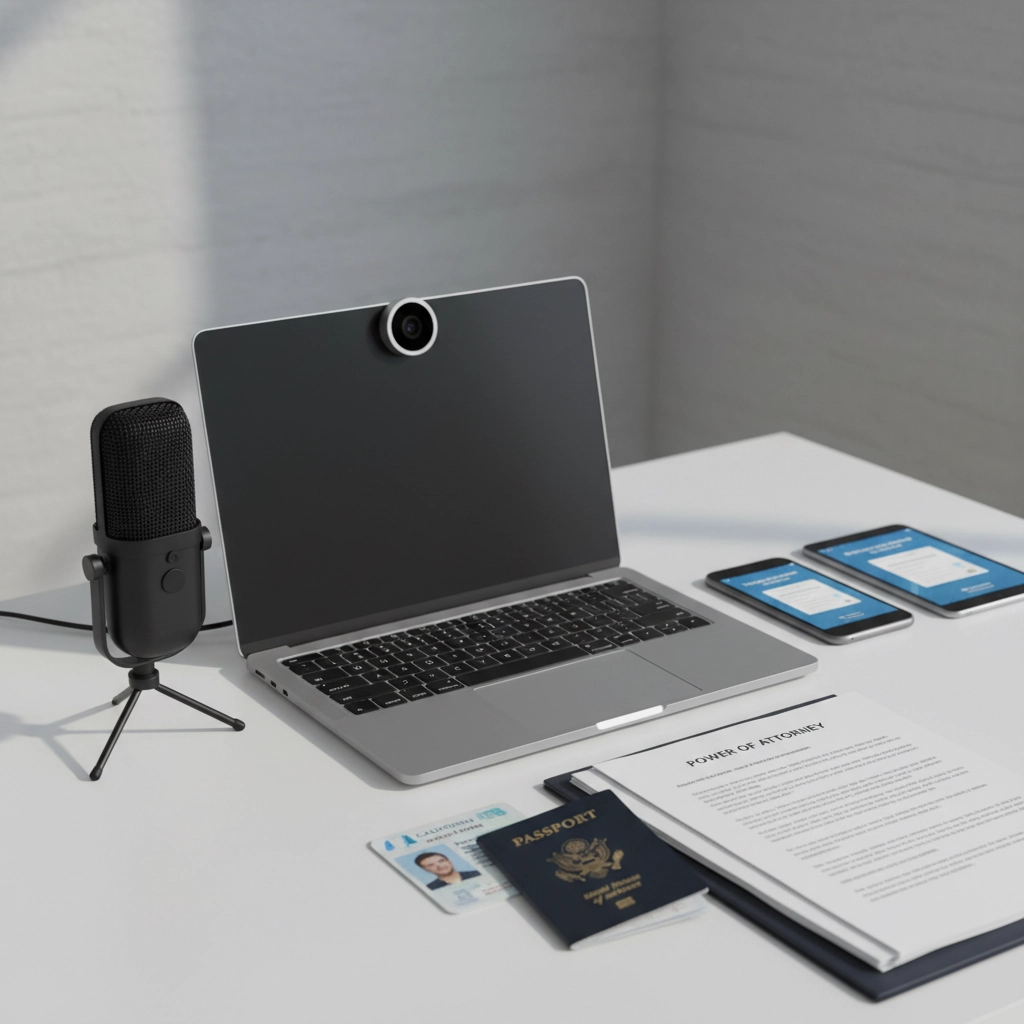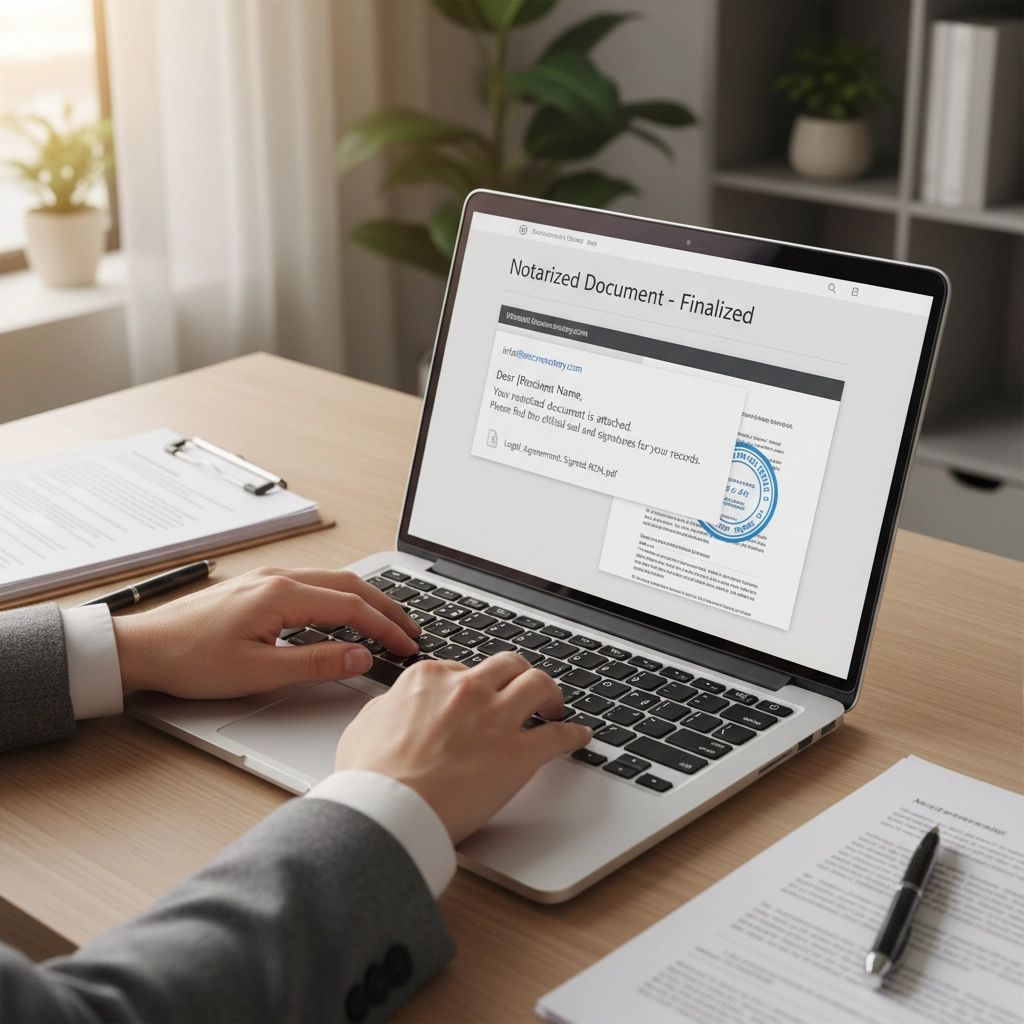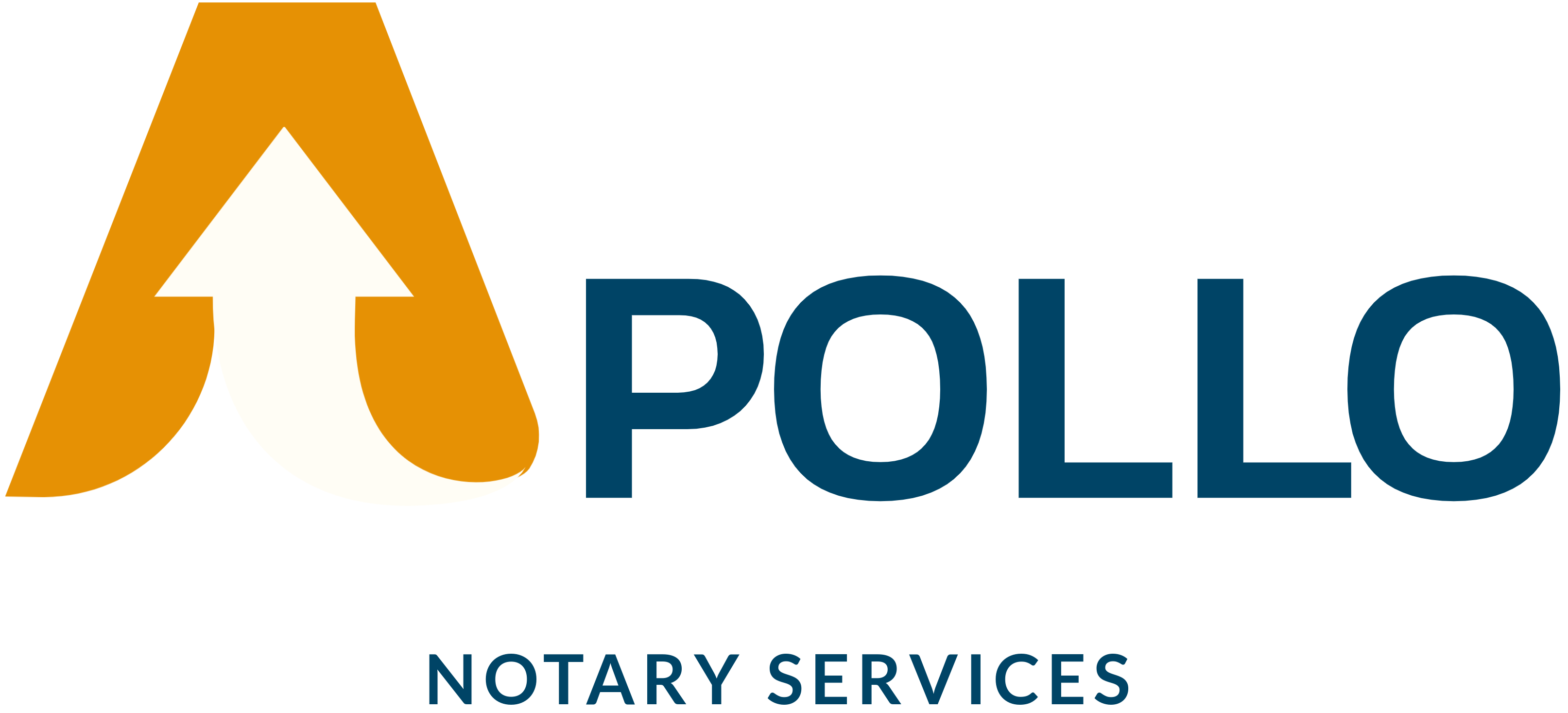Remote online notarization has revolutionized how we handle document authentication. As of 2025, RON is legally authorized in 45 states and the District of Columbia, making it easier than ever to get your important documents notarized without leaving home.
Whether you're dealing with real estate contracts, powers of attorney, or business agreements, understanding how remote online notarization works can save you time and streamline your document processing.
What Is Remote Online Notarization?
Remote online notarization allows you to have documents notarized through a secure video conference with a commissioned notary public. Instead of meeting in person, you'll connect via computer or mobile device to complete the notarization process entirely online.
This digital approach maintains all the legal protections of traditional notarization while offering unprecedented convenience. Documents notarized through RON carry the same legal weight as those notarized in person, and the process actually provides enhanced security through digital audit trails.

The technology behind RON includes identity verification systems, tamper-proof document storage, and encrypted video sessions that create a permanent record of the notarization event.
Who Can Use Remote Online Notarization?
RON is available to anyone who needs notarization services and is physically located in a state where remote online notarization is permitted. You don't need special technical skills – just basic computer literacy and the required equipment.
Common users include:
- Homebuyers and sellers handling real estate transactions
- Business professionals executing contracts
- Individuals setting up powers of attorney
- People dealing with estate planning documents
- Anyone who values convenience and time savings
However, certain documents may still require in-person notarization depending on your state's specific laws. These might include wills, certain court documents, or specific real estate papers.
Essential Requirements for RON
Before starting your remote online notarization session, you'll need to gather several items and ensure your technology meets the minimum standards.
Identity Requirements
You must have a current, government-issued photo ID such as:
- Driver's license
- State-issued ID card
- Passport
- Military ID
The ID must be valid and clearly readable through your device's camera. Expired documents won't be accepted, and the name on your ID must match the name on the document being notarized.
Technology Requirements
Your setup needs to support high-quality video and audio communication:
Device: Computer, tablet, or smartphone with a working camera and microphone
Internet: Stable broadband connection (minimum 1.5 Mbps upload/download speed)
Browser: Updated web browser compatible with the notary's platform
Environment: Quiet, well-lit space where you can clearly be seen and heard

Most modern devices will work fine, but you should test your camera and microphone before your scheduled session to avoid technical difficulties.
Step-by-Step Process for Getting Documents Notarized Online
Step 1: Schedule Your Session
Contact a RON-certified notary or notary service to schedule your session. Many services offer same-day or even immediate availability, making RON much more flexible than traditional mobile notary services.
When scheduling, you'll typically need to provide:
- Document type and number of signatures needed
- Your preferred date and time
- Contact information
- Payment method
Step 2: Upload Your Documents
You'll receive secure access to upload your documents to the notary's platform. Documents are typically uploaded as PDFs, and you should ensure all signature fields are left blank – you'll sign electronically during the session.
The platform uses bank-level encryption to protect your sensitive information during transmission and storage.
Step 3: Complete Identity Verification
RON uses sophisticated identity verification that often exceeds traditional notarization security. This process typically includes:
Credential Analysis: The system scans your ID to verify its authenticity and extract information
Knowledge-Based Authentication: You'll answer personal questions that only you should know, drawn from public records
Biometric Verification: Some platforms use facial recognition to compare your live image with your ID photo
This multi-layered approach significantly reduces fraud risk compared to simple visual ID checks used in traditional notarization.
Step 4: Join the Video Session
At your scheduled time, you'll receive a secure link to join the video conference. The notary will greet you and guide you through the remaining steps.
During this session, you'll:
- Show your physical ID to the camera for visual verification
- Confirm your understanding of the document
- Verify you're signing voluntarily without coercion
- Ask any questions about the notarization process
Step 5: Sign Electronically
The notary will guide you through applying your electronic signature to the document. Electronic signatures are legally equivalent to handwritten signatures when properly applied through RON systems under the federal E-SIGN Act.
After you sign, the notary will apply their electronic signature and official seal to complete the notarization.

Step 6: Receive Your Notarized Documents
Once complete, you'll typically receive your notarized documents via secure email within minutes. The platform creates a tamper-proof record that includes:
- The video recording of the session
- Electronic journal entries
- The final notarized document
- Complete audit trail of all actions
Technology Behind RON Security
The security measures in remote online notarization often exceed those of traditional notarization. According to the National Association of Secretaries of State, RON platforms must meet strict technical requirements including:
- End-to-end encryption for all communications
- Multi-factor authentication for access
- Tamper-evident document storage
- Comprehensive audit trails
- Secure credential analysis systems
These technological safeguards create a more secure environment than typical in-person meetings, where ID verification relies solely on visual inspection and documents can be easily altered after notarization. For additional standards and guidance, see the NIST Digital Identity Guidelines and MISMO Remote Online Notarization Standards.
State-Specific Considerations
While 45 states now permit RON, specific rules vary by location. For example, some states restrict which documents can be notarized remotely, while others have specific requirements for notary commissions.
The Uniform Law Commission's RULONA provides model legislation that many states have adopted, but you should always verify your state's current requirements.
Additionally, you must be physically located within a state that permits RON during your session – the technology can verify your location to ensure compliance.
Choosing a RON Provider
When selecting a remote online notary service, consider factors such as:
- State authorization and proper licensing
- Available scheduling options
- Platform security features
- Pricing transparency
- Customer support quality
- Document storage and retrieval options
Apollo Notary Services supports three leading remote notarization platforms. Choose your preferred platform and include it with your booking:
- BlueNotary – fast scheduling and a straightforward signer experience
- Proof – enterprise-grade identity, security, and compliance features
- OneNotary – flexible sessions with broad document support
Prefer a recommendation? Contact our team and we’ll match the best platform to your document type, state rules, and timeline.
Apollo Notary Services offers comprehensive RON services with experienced notaries and secure technology platforms designed to meet all state requirements while providing exceptional customer service.
Common RON Challenges and Solutions
Most RON sessions proceed smoothly, but being prepared for potential issues can help ensure success:
Technical Difficulties: Test your equipment beforehand and have a backup device ready
Document Quality: Ensure documents are clear and complete before uploading
Identity Verification Issues: Have multiple forms of ID available if possible
Internet Connectivity: Use a wired connection when possible for stability
If problems arise during your session, qualified notaries can often guide you through solutions or reschedule without additional fees.
The Future of Remote Notarization
Remote online notarization continues evolving rapidly. Industry experts predict broader document acceptance, improved artificial intelligence integration, and enhanced mobile platform capabilities throughout 2025 and beyond.
The American Land Title Association reports increasing acceptance of RON for real estate transactions, traditionally one of the most conservative document categories.
Ready to Get Started?
Remote online notarization offers unmatched convenience without sacrificing security or legal validity. Whether you need a single document notarized or handle regular business requiring notary services, RON can streamline your processes significantly.
Ready to experience the convenience of remote online notarization? Contact Apollo Notary Services today to schedule your RON session, review our pricing, and explore our services and guides. Our certified notaries are available with flexible scheduling options to meet your needs, and our secure platform ensures your documents receive proper legal authentication with complete peace of mind.
Don't let traditional notarization delays hold up your important transactions – discover how remote online notarization can save you time while providing enhanced security for your most critical documents.

